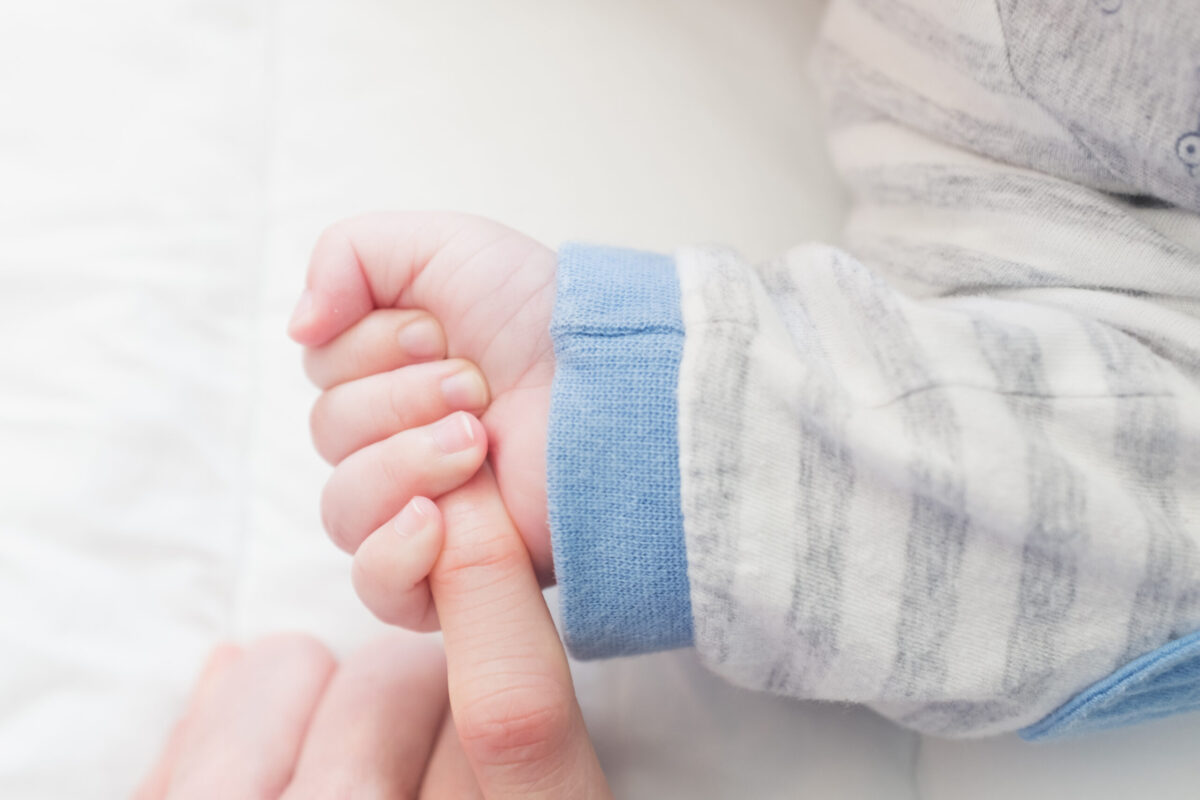Keeping babies safe while sleeping is important, but it’s something not all parents are informed about. Roughly 3,400 babies die suddenly and unexpectedly while sleeping each year in the U.S., and sudden infant death syndrome (SIDS) is one cause.
While SIDS is still a very real concern, there is good news: Babies in Tennessee are 4 times less likely to die from SIDS today than they were 20 years ago. The reason: better prevention.
WellTuned spoke with Dr. Sharon Moore-Caldwell, a medical director for BlueCare Tennessee, to learn more.
What is sudden infant death syndrome?
Dr. Moore-Caldwell: SIDS is the sudden death of an infant under 1 year of age that can’t be explained following an autopsy, scene investigation and review of clinical history. SIDS is one type of Sudden Unexpected Infant Death (SUID), which includes SIDS deaths as well as any caused by:
- Suffocation
- Entrapment
- Infection
- Ingestion
- Metabolic diseases
- Cardiac arrhythmias
- Trauma
Each year 2300 babies die of SIDS in the U.S.
What are the risk factors of SIDS?
Dr. Moore-Caldwell: Studies show that babies who are put to sleep on their back instead of their stomach or sides are far less likely to die of SIDS. While we still encourage tummy time, it should only happen while everyone is awake.
In addition to sleeping conditions, some other risk factors for SIDS include:
- Children who are exposed to smoke, (moms who smoke while the baby is in the womb, smoke exposure after birth)
- Premature and low-weight babies
- Babies who are born to moms with little or no prenatal care
- Babies who aren’t breastfed
- Families who’ve had a child die of SIDS before
What steps should caregivers take to prevent SIDS?
Dr. Moore-Caldwell: HealthyChildren.org offers clear, simple guidelines:
1. Babies should sleep on their backs, at night and for naps, until their first birthday. Once your baby is able to roll onto their stomach, however, you don’t have to turn them back over.
2, Use a firm sleep surface in a crib, bassinet, portable crib or play yard that meets safety standards. Outside of a firm mattress and fitted sheet, nothing else should be in the crib, including soft objects or loose bedding.
3. Only bring your baby into your bed to feed or comfort them. Put your baby back in their sleep space when you’re ready to go to sleep.
4. Bed sharing is not recommended for any babies. It’s especially dangerous if:
-
- Your baby is younger than 4 months old, was born early or had low birth weight
- Anyone in the bed is a smoker (even if you don’t smoke in bed)
- The baby’s mother smoked during pregnancy
- You drink alcohol or take medicine that makes it hard to wake up
- You aren’t the baby’s parent
- The surface is soft (waterbed, old mattress, couch, armchair) or there’s soft bedding (pillows, blankets) that could suffocate the baby
5. Room share if you can. Keep the baby’s sleep area in the room where you sleep for at least the first 6 months.
6. Don’t let your child fall asleep on nursing pillows or pillow-like lounging pads. Babies can roll over and turn their heads into the soft fabric.
7. If a baby falls asleep in a car seat or swing, remove them and place them on a firm sleep surface.
8. Never place your baby to sleep on a couch, sofa, or armchair.
9. Swaddling is fine, but the baby should always be on their back when swaddled. Once your baby starts trying to roll over, stop swaddling them.
10. Try giving a pacifier at nap time and bedtime.
Any other advice for preventing SIDS?
Dr. Moore-Caldwell: Establish a relationship with your child’s health care provider and go to all well-child visits. Well visits are crucial because they give you and your child’s doctor an opportunity to talk about sleep position, feeding, soothing techniques, the equipment you’re using and anything else you’re concerned about.
On the equipment note, make sure the products you’re using are up to today’s standards. That means ensuring they haven’t been recalled since you used them with your last child, or since a friend/family member passed them down to you. And don’t use any equipment that’s been damaged.
Finally, once the baby arrives, make sure your family prioritizes the care of the baby and the caregivers. The way the parents are living makes a difference, and the same goes for anyone who’s around the baby.
If SIDS happens to a caregiver, where can they find support?
Dr. Moore-Caldwell: The child’s pediatrician is always my first recommendation. They should be able to connect you with grief counseling, or with other caregivers who are going through the same thing in your area. They should also be able to recommend the best resources for you and your other children.
If you’ve lost a baby to SIDS or other sleep-related infant death and need help now, call First Candle grief support: 1-800-221-7437.
More from WellTuned
- How grief affects your health
- What to say to someone who’s lost someone: Q&A with a BlueCross psychiatrist
Get more information about specific health terms, topics and conditions to better manage your health on bcbst.com. BlueCross BlueShield of Tennessee members can access wellness-related discounts on fitness products, gym memberships, healthy eating and more through Blue365®. BCBST members can also find tools and resources to help improve health and well-being by logging into BlueAccess and going to the Managing Your Health tab.


